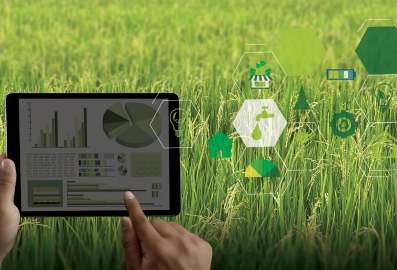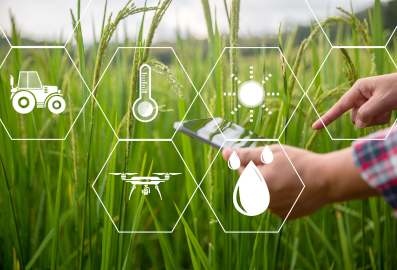Secure food supply
Agriculture and farming companies face growing cybersecurity challenges that threaten not just business continuity, but food safety and public trust. From targeted attacks on automated systems to data breaches that can disrupt production and distribution, the risks are both digital and physical. Manipulated sensor data or insider misuse can lead to serious operational damage, while ransomware or supply chain vulnerabilities can halt entire harvests. As smart farming expands, so does the attack surface—making traditional security measures insufficient.
Key Security Challenges:
• Securing operational technology (OT) and IoT devices critical for modern automated agriculture operations.
• Ensuring continuous regulatory compliance, data integrity and complete traceability within complex supply-chain ecosystems.
These challenges can be effectively countered with advanced tools like Cyberquest SIEM, CQ Automation and Netalert NDR, built to protect, detect and respond across every layer of your critical infrastructure.
Scenario:
A large agricultural enterprise relies heavily on IoT sensors for monitoring soil moisture, temperature, and automated control of machinery across distributed locations. Cyberquest SIEM identifies unusual communication patterns between these sensors, indicating potential sabotage or unauthorized access attempts. Using Netalert NDR’s agentless monitoring capability, Cyberquest quickly pinpoints the exact source of these anomalies within remote farm networks, allowing the security team to proactively mitigate the risk before any disruption or damage can occur.

Why Cyberquest and Netalert?
-
Provides agentless, deep network visibility (Layer 2 and 3) through Netalert, which is particularly effective in remote or resource-constrained agricultural environments.
-
Detects anomalies and security threats in real-time, specifically tailored for monitoring agricultural IoT devices and OT systems.
-
Features extensive built-in connectors for straightforward integration with diverse IoT sensors, agricultural machinery and supply-chain management systems.
Top 5 Concerns
Food safety and data integrity
Insider threats and social engineering
IoT and smart farming risks
Ransomware threats to production & distribution
Supply chain vulnerabilities
Food safety and data integrity
Data integrity is critical in food safety and regulatory compliance. Cyberattacks targeting food production data can falsify ingredient tracking, expiration dates, or contamination reports, leading to health risks, reputational damage and legal liabilities.
Ensure data integrity. Adopt real-time monitoring and automated validation systems.
Key Dangers & Risks:
Insider threats and social engineering
Cybersecurity in agriculture isn’t just about technology - it’s also about people. Employees, suppliers, and contractors can unknowingly or deliberately expose critical systems to cyber threats. Phishing attacks can trick staff into revealing login credentials, while disgruntled insiders may manipulate inventory data, alter food safety records or disrupt automated farming operations.
Strengthen human defenses. Implement cybersecurity awareness training, strict access controls and continuous monitoring for suspicious activity.
Key Dangers & Risks:
IoT and smart farming risks
Precision agriculture and smart farming rely on IoT devices, but these technologies create new attack surfaces. Poorly secured IoT sensors and connected equipment can be hijacked, leading to operational failures, crop losses or even environmental hazards, due to altered irrigation or pesticide usage.
Harden your IoT security. Encrypt data, patch devices and monitor network activity.
Key Dangers & Risks:
Ransomware threats to production & distribution
Ransomware is a growing menace, with attackers targeting production plants, storage facilities, and distribution networks. A single attack can halt food processing, spoil perishable goods, and result in massive financial losses.
Protect your operations. Implement robust backup strategies, employee training and advanced threat detection.
Key Dangers & Risks:
Supply chain vulnerabilities
Agriculture and food supply chains are increasingly digital, but this connectivity exposes them to cyber threats. A single weak link—whether a supplier, logistics partner, or software provider—can compromise the entire chain. Ransomware attacks, data breaches, and operational disruptions can lead to food shortages and financial losses.
Secure your supply chain—implement strict cybersecurity measures and evaluate partners rigorously.
Key Dangers & Risks:
Unique advantages:
-
Agentless, real-time network monitoring ideal for remote or bandwidth-limited agricultural environments.
-
Customized anomaly detection specifically designed for IoT and OT devices used in agriculture.
-
Ready-to-use connectors simplifying integration across diverse agricultural equipment, systems and sensors.

